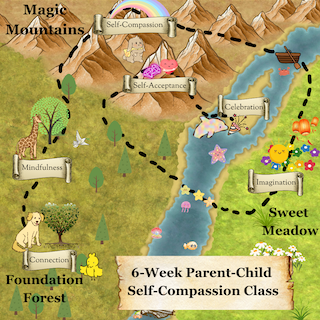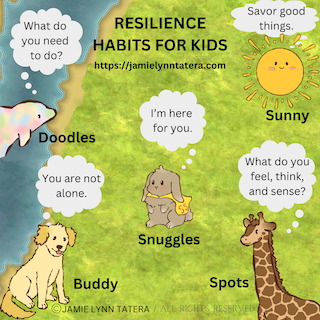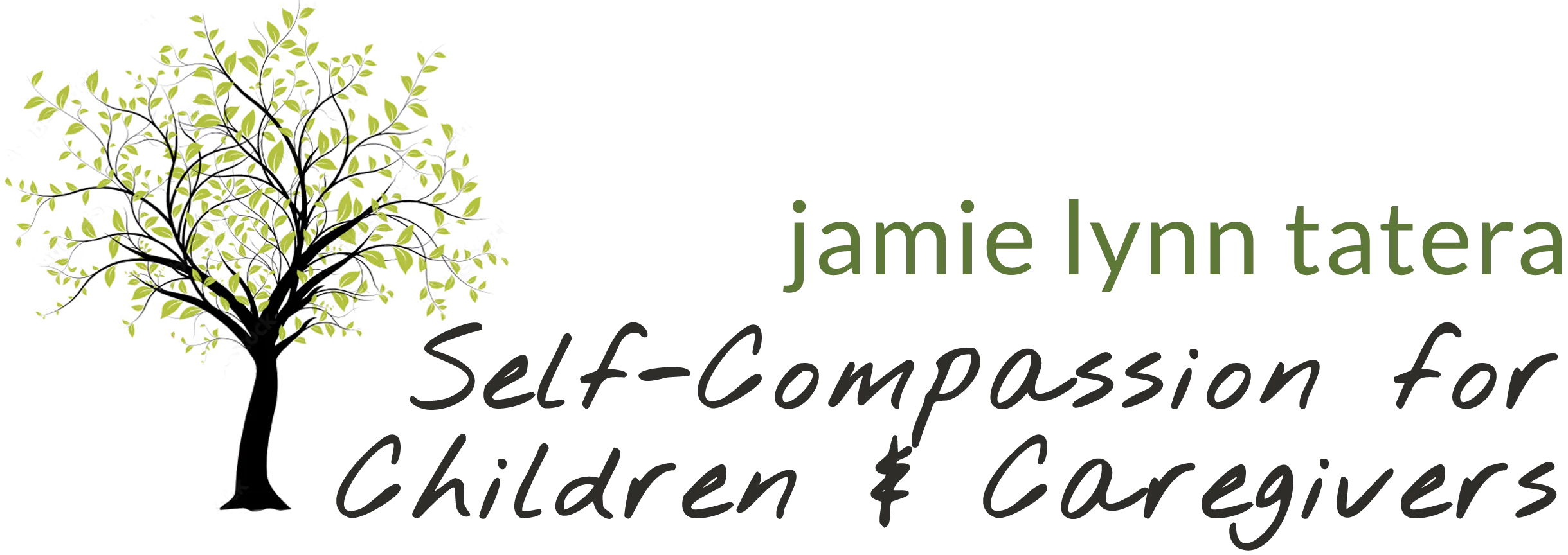Recently, my colleague, Dajana Yoakely, signed herself and her kids up for my parent-child self-compassion class.
When I sent her a welcome email, she replied that she wasn’t sure how her kids were going to feel about taking the parent-child class. She said, “I told [my kids] I signed us all up for a class but they were like, ‘Hmm what’s that about?’”
I let her know that kids are rarely excited about taking a self-compassion class at the outset. That’s actually one of the things we talk about in our parent orientation session, and we also do an activity acknowledging kids’ challenging feelings during our first class. But, luckily, kids are usually big fans by the end of class!
When I shared this info, Dajana responded with surprise. She said that she would have signed her kids up a lot earlier if she had known how common it was for kids to be less than thrilled about the idea of taking the class. This really surprised me, and was my impetus for writing this blog. Dajana is an awesome mom and parenting coach, and if she didn’t know that kids don’t always get excited about learning resilience habits, I realized that other parents might not know how common it is for kids to resist learning self-compassion.
Why kids might be less than thrilled about taking a self-compassion class
There are at least three reasons why kids might not want to take a self-compassion class:
- It’s not a video game.
- It’s not as fun as playing legos, playing make-believe or riding their bike.
- We talk about feelings.
As you can see, there are many good reasons why kids might resist learning resilience habits in a parent-child self-compassion class. But what is the good news? Kids who take my class have fun and are big fans of the class when it is done.
What makes the parent-child self-compassion class fun?
What makes it fun?
The map. Seriously? Yes. Kids really do like the map. It helps them know where we are going on our self-compassion journey.

The resilience habit animals. The resilience habit animals, featured in the Quest for Self-Compassion Workbooks, are also featured in the parent-child self-compassion class. The animals are cute and make learning playful. Even older learners (up to age 12) say good things about the resilience habit animals.

The comics. I’ll share some comics in my upcoming blogs, but let’s just say they are a fun way to learn resilience and self-compassion skills.
And most importantly: Growing more resilient side-by-side with their parents. Even though kids might resist at the outset, it feels good to sit next to their parent, connect, and playfully learn and grow together.
Quotes from Kids
Here’s some quotes of parents and kids from my last class:
Kids’ comments:
- “Well, I really liked it. And I think it helped me out a bit. Like, nowadays, I find the buddy habit really helpful, whereas before I did this, I was like ‘I’m the only person going through this.’”
- “I really liked doing it. I wish there were more weeks.” “I would recommend this class to other kids…especially if you are having trouble blaming yourself.”
- “It helped me calm down. I noticed I didn’t get so mad like I used to get. ‘You’re not alone.’ I notice myself sometimes saying that in my brain.”
- “Before, I did not know how to regulate my emotions so much, if my little sister made me angry I would just explode. Now that I’ve done that class and I’ve learned how to calm myself down, I can go to my room, do something from that class, and just calm down and come back downstairs when I’m ready.”
Parents’ Comments
- “Overall it was really successful because [my child] was able to walk away with new skills…she really enjoyed her time. She found it very valuable.”
- “[My child] is talking about her feelings SO much more…she will..name it..it has helped a ton…she’s made significant strides trying to allow herself to acknowledge her anger and acknowledge her frustration…talking through when things are upsetting or frustrating or hard.”
- “[The class] has allowed me to dwell less when things don’t go right.. it’s ok, everybody has these challenges. I’m more compassionate towards myself. And it has given me ways to interact with [my child] to help her not be so hard on herself.”
But how do I get my child to agree to attend?
I could write a whole blog on this topic. But, in the interest of being succinct, I’m just going to link an FAQ for the parent-child class that is full of tips on page 2 about how to help make the class a pleasant experience for you and your child.
Take the Plunge!
The parent-child self-compassion class is for kids ages 7-11 (or a little older or a little younger). If your kids fall into that age range, you can sign yourself and your child up for the parent-child self-compassion class or attend a free Self-Compassion for Children and Caregivers info session.
If your kids are older (teens), they can take the MSC for teens class.
If there is no way in hell your child will ever take a self-compassion class (or your child is really little, or already out of the house, or you don’t have kids but really love your nieces), YOU can take a self-compassion class for grown-ups. Your level of self-compassion will profoundly influence your child’s self-compassion level. If you’ve already taken Mindful Self-Compassion training, the Compassionate Parenting course is your next step. Also, you can see this blog for tips for helping kids grow self-compassion at home.
It all comes down to this..
In the end, I just want to see kids be their happiest, most authentic selves, and suffer less. That’s why I created the parent-child class, the SCCC teacher training program(we now have over 20 self-compassion for children and caregivers teachers), the upcoming Quest for Self-Compassion workbooks, this blog, and my new We Are in It Together Podcast. Because us caregivers can band together to be our kindest, most resilient selves and support kiddos in doing the same.
Wishing you and all children light and love,
Jamie Lynn
P.S. I recently took Super Snuggles to Oshkosh and auditioned for TEDx Oshkosh. My topic? How to help kids develop a strong inner voice. Wish me luck friends!

